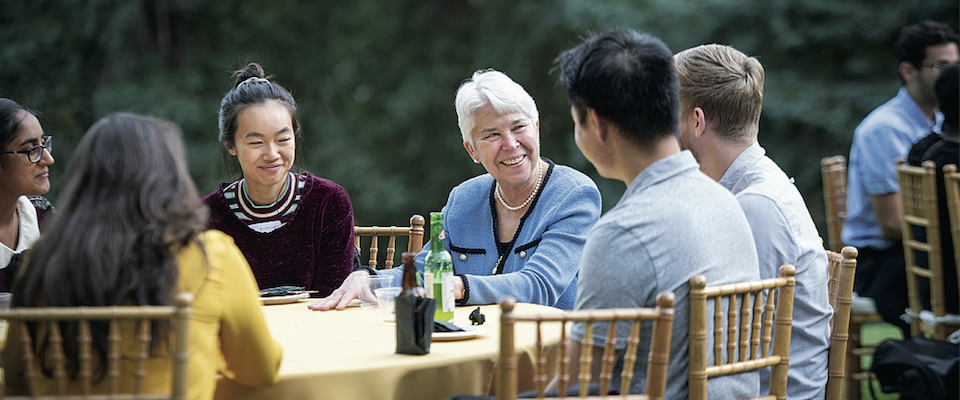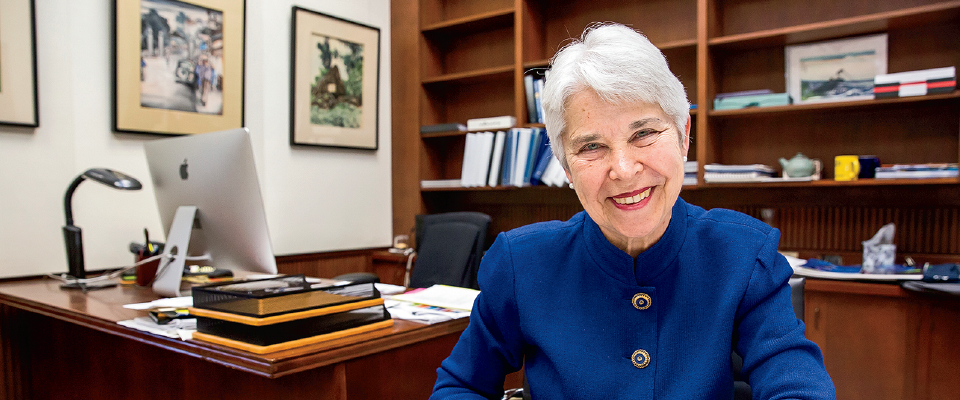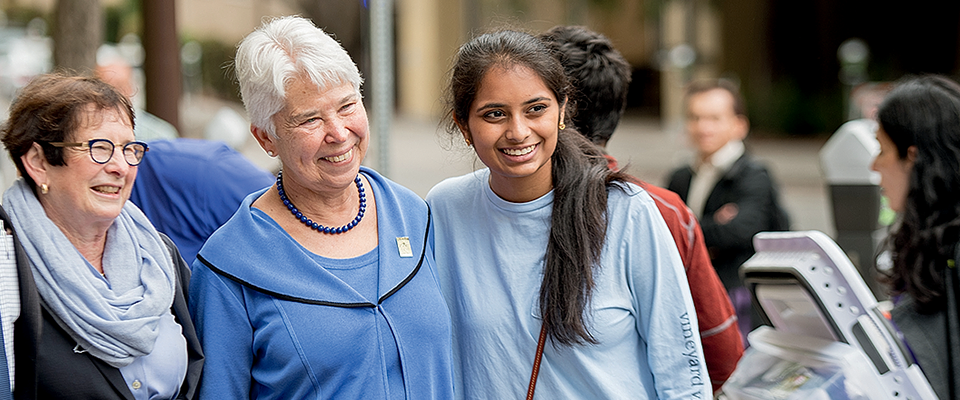The Chancellor talks about the importance of campus diversity for meeting Berkeley’s educational and multicultural goals.
One of my most important goals for Berkeley is to advance and expand diversity on our campus, in its broadest sense and every form. We are now launching the first wave of new, accelerated efforts to support and expand diversity among our student, faculty, and staff populations.
As these important and exciting initiatives begin, I want to share my perspectives on the values, commitments, and objectives that will guide us on the road ahead.
I believe that the excellence of our University depends on diversity of thought and perspective, both of which are the result of, and profoundly enhanced by, the diversity of our campus community. Our mission and our institutional character—in research, teaching, and public service—demand that we embrace, embody, and protect diversity of every kind, including but not limited to, race and ethnicity, disability, intellectual interest, gender, sexual orientation, socioeconomic status, geographical origin, and religious and ideological beliefs.
Diversity advances our educational goals; prepares our students to thrive in a multicultural world; and ensures we meet our representative responsibilities as one of the leading public institutions in California, one of the most diverse states in the country. For these reasons much of our present and future efforts must be focused on the campus’s demographic makeup.
Yet, having a truly diverse campus community is insufficient and unsustainable absent a supportive, welcoming, and respectful campus culture where all can feel a sense of belonging and connection. Inclusion and what I call “equity of experience” ensure we each have—regardless of our origins, abilities, beliefs, or identities—the support and freedom necessary to achieve our academic and professional goals. We must strengthen our existing efforts to improve our campus climate for historically under-represented and marginalized people and ensure that Berkeley will be a place where all can thrive and realize their full potential.
The greatest challenges and opportunities rest with our undergraduate student population. I began my career here when Berkeley was mostly white and the faculty was almost entirely male. And I watched the campus transform into a place where students of every color and background were accepted and successful, where women joined the ranks of faculty in growing numbers. At one point, Berkeley led the University of California system in the diversity of its students, and this diversity was an enormous part of our excellence and the vibrancy of our campus environment.
For the past 25 years, however, we have struggled to make progress, and we now have the lowest proportion of under-represented minority students among the undergraduate UC campuses. Even as we observe Proposition 209’s prohibition against race-, ethnicity-, or gender-based decisions in admissions, hiring, or contracting, we cannot and will not use that as an excuse. During this same period, the proportion of under-represented minorities has grown on every UC campus and, of course, in the state as a whole.
When it comes to building and supporting a more diverse student body, I see five distinct, but deeply interconnected elements. There are the University programs designed to improve the K–12 “pipeline” and thus increase the number of UC-qualified students from under-represented populations. Then there are the campus outreach efforts to prospective students which, by virtue of their content and focus, impact the demographics of our applicant pool. While race and ethnicity can play no role in our admissions process, we must ensure that process is free from discriminatory elements that lead to admission inequities. After letters of admission are sent out, our attention turns to yield activities, where we can improve our efforts to increase the number of academically qualified students from under-represented and historically marginalized populations who accept their offers of admission. In this same realm, we will also expand our collaboration with independent, external groups who can target financial aid offers to these same students. Finally, there is our campus climate. All of our efforts will be wasted if we cannot support equity of experience, an inclusive culture, and a campus where members of historically marginalized communities are sufficiently large in number so as to avoid debilitating and damaging isolation.
Racial, ethnic, and socioeconomic diversity has a clear impact on our educational mission and student outcomes. Exposure to peers of diverse backgrounds enhances student learning. Numerous studies have shown that diversity fosters improvements in students’ cognitive skills, including critical thinking and problem-solving, because exposure to individuals different from ourselves challenges our thinking and leads to cognitive growth. Employers seek students who can work with diverse colleagues and across cultural lines. Diversity helps to train future leaders who are creative, collaborative, and able to thrive in multicultural environments. Research also indicates that when a race or ethnicity is severely under-represented, the isolation experienced by the members of those communities may severely undermine educational outcomes, not to mention their sense of belonging and well-being.
For these reasons, we are focusing on a new Undergraduate Student Diversity Project that will provide the necessary analysis and needed recommendations to expand diversity and improve the campus experience for all. With philanthropic support, we will also enhance outreach programs; advising services; support for transfer and non-traditional students; the mobilization of student ambassadors; on-campus navigational assistance for first-generation, low-income, and students of color; and initiatives designed to ensure that the basic needs of every Berkeley student are being met.
I look forward to working with our campus community and alumni as we tackle the challenges, seize opportunities, develop innovative ideas, and show no sympathy for the status quo. To do, in short, what Berkeley does best.





















